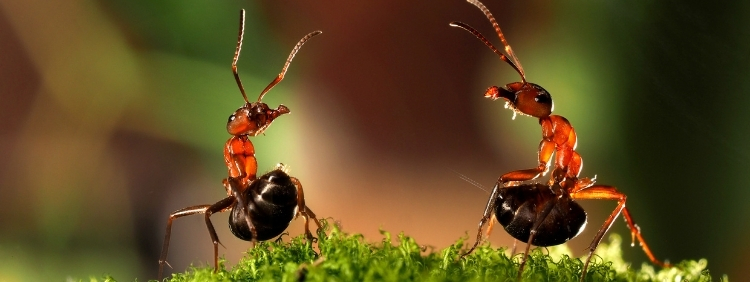 This isn’t a trick question. If you think that the answer is that ants smell good or ants smell bad, you’re also mistaken. Ants have a highly developed sense of smell that helps them communicate with other ants. Ants use their sense of smell to send and receive important messages for survival. Understanding the different ways that ants employ their sense of smell with pheromones could lead to future breakthroughs in pest control in Kitchener and other areas. Find out how ants use their sense of smell and who to contact if you need professional ant removal services.
This isn’t a trick question. If you think that the answer is that ants smell good or ants smell bad, you’re also mistaken. Ants have a highly developed sense of smell that helps them communicate with other ants. Ants use their sense of smell to send and receive important messages for survival. Understanding the different ways that ants employ their sense of smell with pheromones could lead to future breakthroughs in pest control in Kitchener and other areas. Find out how ants use their sense of smell and who to contact if you need professional ant removal services.
 This isn’t a trick question. If you think that the answer is that ants smell good or ants smell bad, you’re also mistaken. Ants have a highly developed sense of smell that helps them communicate with other ants. Ants use their sense of smell to send and receive important messages for survival. Understanding the different ways that ants employ their sense of smell with pheromones could lead to future breakthroughs in pest control in Kitchener and other areas. Find out how ants use their sense of smell and who to contact if you need professional ant removal services.
This isn’t a trick question. If you think that the answer is that ants smell good or ants smell bad, you’re also mistaken. Ants have a highly developed sense of smell that helps them communicate with other ants. Ants use their sense of smell to send and receive important messages for survival. Understanding the different ways that ants employ their sense of smell with pheromones could lead to future breakthroughs in pest control in Kitchener and other areas. Find out how ants use their sense of smell and who to contact if you need professional ant removal services.

